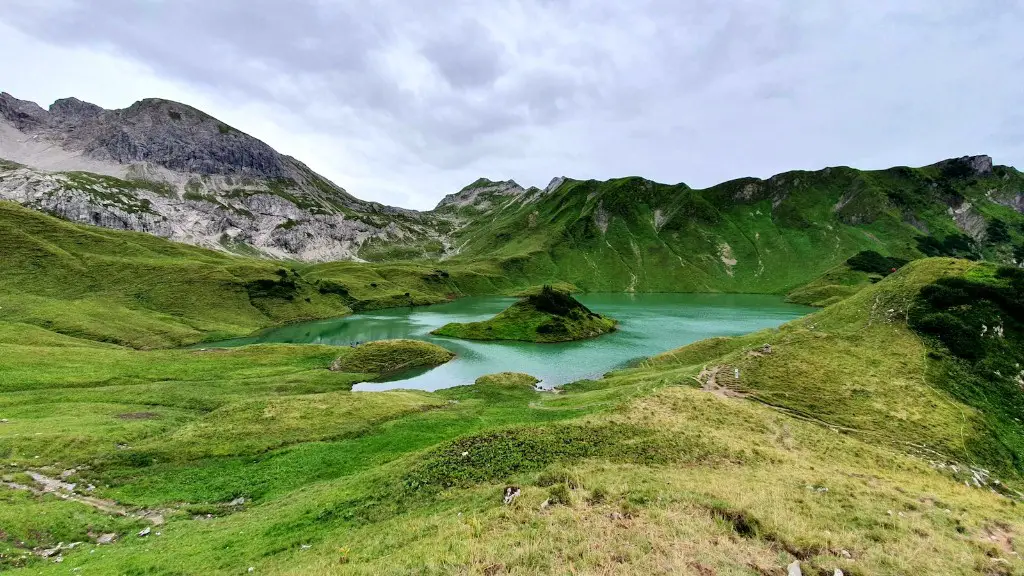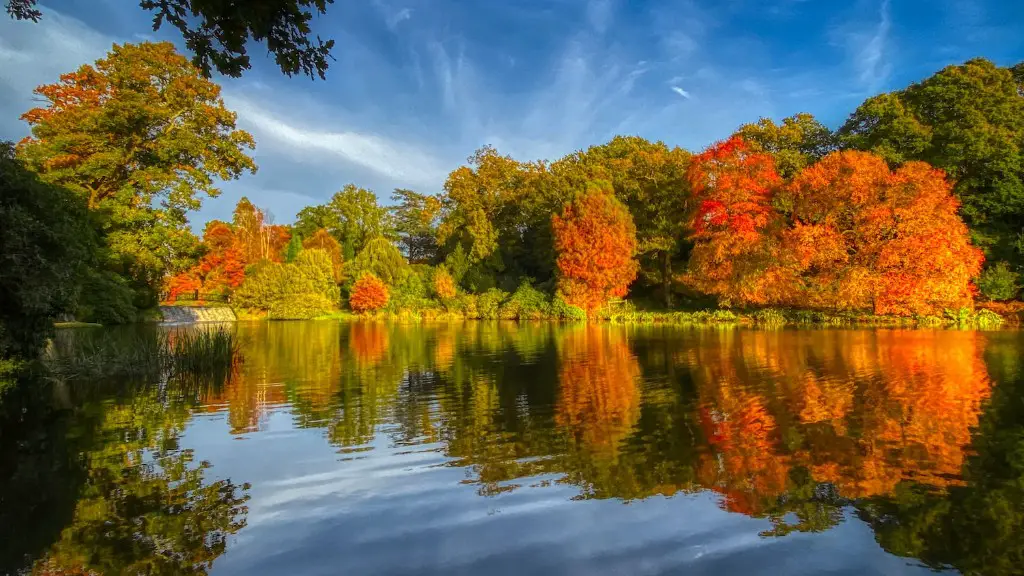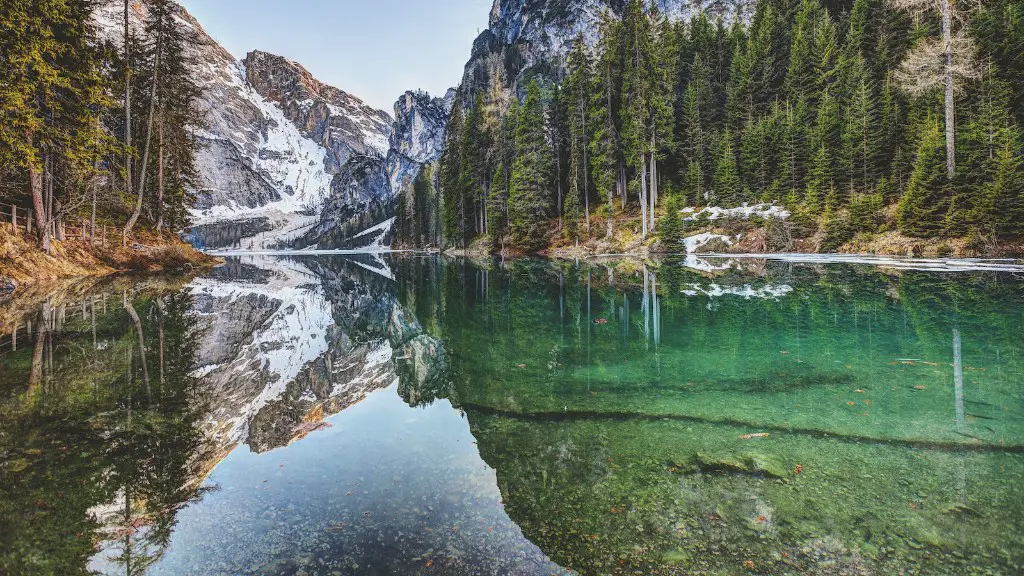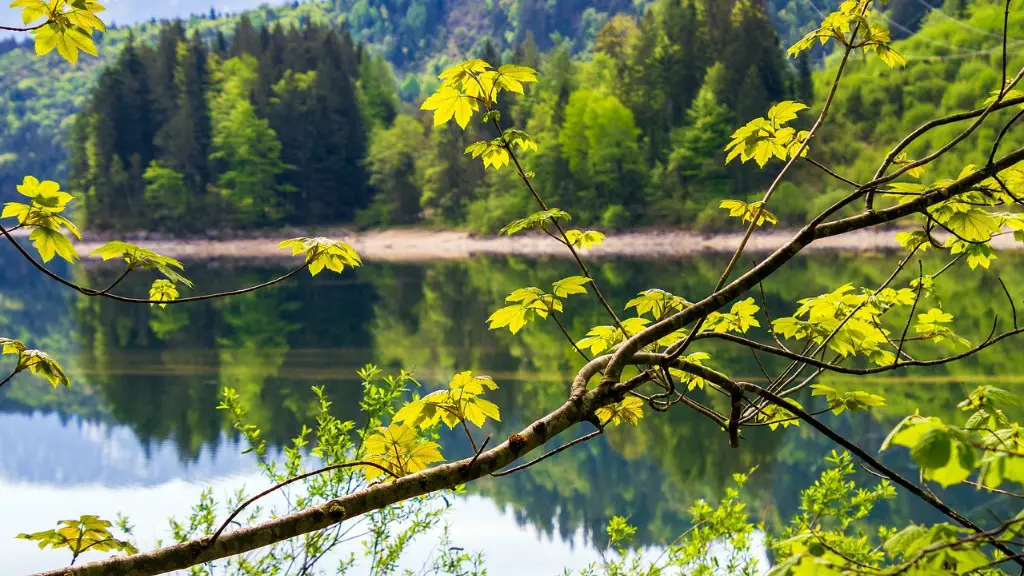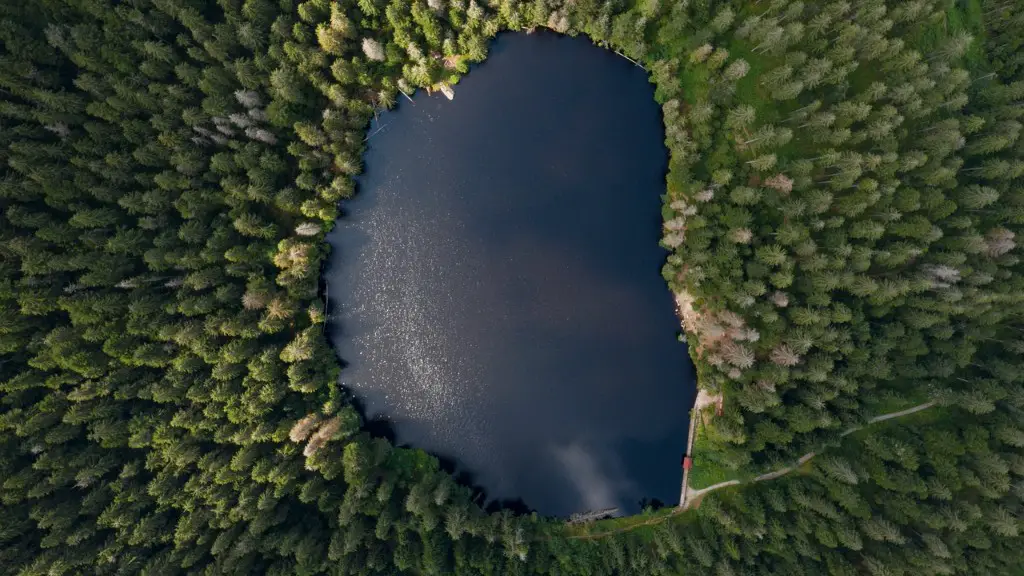In the winter, temperatures can plummet and snow can linger for long periods of time in the Midwest. Has Lake Michigan ever frozen over? Lake Michigan is one of the five Great Lakes located in the Midwest and is the third-largest of them.
The answer to this question is both yes and no. Yes, Lake Michigan has frozen over in completely, although not since the late 1800s. If freezing occurred, it would happen in December, when temperatures drop and ice can form on the surface. It reportedly happened in both 1821 and 1883.
While it’s true that Lake Michigan has frozen over in the past, experts say it’s unlikely it will happen again anytime soon. This is because climate change has caused temperatures to rise, making it harder for the lake to freeze over entirely. It could take a very long cold winter for that to happen.
Experts also suggest that some of the ice that does form on the lake’s surface may actually help prevent the lake from completely freezing. The lake’s current temperature levels are no longer cold enough to completely freeze it, but some areas may still freeze over. If a layer of ice forms on the surface, it could actually slow the temperature decline, and reduce the chance of complete freezing.
The thickness of the ice plays an important role in the freezing process. Even though times were different during those two times in which the lake was reported to freeze, it’s likely that the ice was quite thick. Ice needs to reach a certain depth in order to be thick enough to protect the lake from further freezing.
In addition to the thickness of the ice, the depth of the lake also affects the freezing process. Lake Michigan is very deep, with an average depth of 279 feet (85 meters). This means that even if the surface were to freeze over, the water beneath the ice is not likely to freeze.
Interestingly, when the lake does freeze, it doesn’t just remain frozen; the sheets of ice move. This is because the lake’s currents are constantly in motion, causing the ice to shift and break apart. During the winter of 1992, seven people died while walking on the lake’s surface, which was believed to be frozen.
Dangers of Ice
When Lake Michigan has partial ice, it could become very dangerous. Even though the temperatures are low, some areas may be completely iced, while others may be completely liquid. Melting and freezing can form large chunks of ice. Therefore, if a person were to step out onto these areas, they could easily lose their balance.
The chunks of ice can also break away from the lake and drift along the surface, which could create hazardous conditions for boats and ships. Reports of vessels dragging and sinking due to large pieces of ice are not uncommon in the colder months of the year.
Variation in Freezing
If the lake does freeze, it won’t happen all at once. Different parts of the lake may freeze at different rates. The warmer waters in the southern part of the lake are not likely to freeze as quickly, while the colder waters in the northern part of the lake may turn to ice more quickly.
In the late 1800s, the northern parts of the lake were the first to freeze. This, in turn, caused the wave action and currents to diminish, eventually slowing down. As the temperatures decreased and the wave action decreased, more parts of the lake froze, eventually leading to a complete freeze.
Effects of Humans
Humans have also significantly contributed to Lake Michigan never freezing again. In fact, some experts suggest that it is human intervention and activities that have led to the lake never freezing again. This includes the constructions of dams, creating artificial waves and currents, and in the 1800s, the townspeople cut large holes through the ice in order to access the frozen fish.
These activities, along with the rise in global temperatures, have caused the lake to remain unfrozen for over 100 years. However, experts suggest that if temperatures were to once again drop significantly, and Lake Michigan experiences a very long cold winter, it could still freeze.
Consequences of Freezing
If Lake Michigan were to freeze completely, it would have both good and bad consequences. On the one hand, it would signal a return to the cold temperatures of the past. This could help reduce the effects of climate change and make winters more enjoyable. On the other hand, it could be very damaging to the lake and its ecosystems.
Once the lake freezes, the wave action and currents stop, leading to the death of aquatic animals that require current and oxygen. In addition, the frozen lake would mean that ships and boats could no longer travel to the lake, and businesses reliant on the lake would be forced to cease operations.
Adaptation of Nature
Even though Lake Michigan won’t be freezing anytime soon, the organisms that live in the lake are already beginning to adapt to the warmer waters. Fish species such as whitefish and lake trout are already adapting to higher temperatures and would be able to survive if the lake were to freeze.
In fact, these fish species could even benefit from the frozen lake, as it could extend their range and enable them to move freely between different areas. In addition, some animals that rely on the lake could find refuge in the deeper reservoirs, where temperatures will remain colder throughout the winter.
Protecting the Lake
The preventative of a frozen Lake Michigan is essential to the lakes overall health and well-being. As the lake temperatures rise, people must be aware of the dangers this poses and work to protect the lake. This includes reducing emissions, conserving water, and reducing pollution.
Individuals can also take steps to protect the lake, such as using fewer resources and being mindful of chemicals that could seep into the lake. Additionally, more individuals should get involved in lake conservation initiatives, and help spread awareness of the lake’s health.
